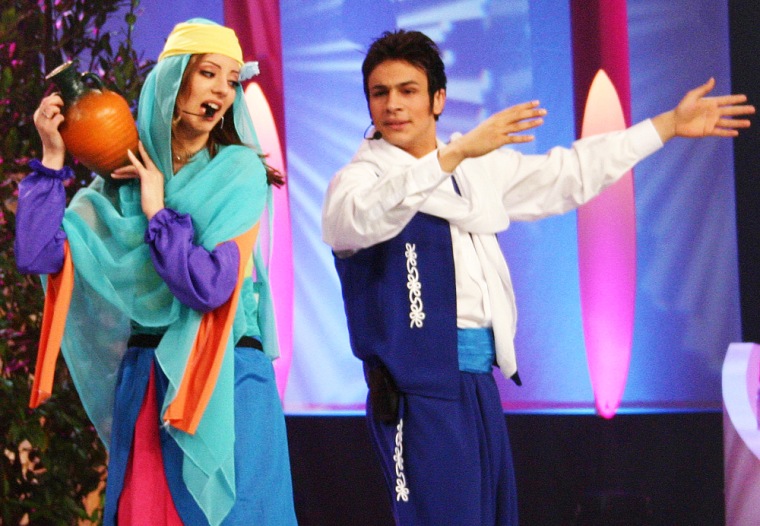Reality TV has burst upon the Arab world, drawing huge audiences but firing up conservative outrage over the spectacle of young men and women flirting, hugging and dancing under one roof.
Young people from Iraq and Syria to Egypt, Kuwait and Yemen love these variations on “Big Brother” and “American Idol.” Some religious scholars and politicians say they’re sacrilegious.
Things got so heated this week that Saudi-owned MBC TV bowed to pressure from Islamic fundamentalists and the Bahrain Information Ministry and said it will suspend “Al-Rayes,” its version of “Big Brother,” less than two weeks into the show.
“Al-Rayes” featured 12 contestants living in a villa on Amwaj, a small island in the Gulf state of Bahrain. Each week one person was to be evicted from the house, with the last remaining tenant winning $100,000.
The critics weren’t assuaged by the fact that male and female contestants slept in separate quarters and had prayer rooms.
The shows are testimony to the power of satellite television and slick Western production methods to overturn societal norms. The success of such imported shows exposes a widening gap between a younger generation and its conservative Muslim elders.
'Star Academy' contestants become household names
'First through the Arab reality door — and into the teeth of conservative protest — was the Lebanese Broadcasting Corporation with “Star Academy,” launched in December. It’s based on a French show of the same name. Next up will be LBC’s version of “Survivor.”
In “Star Academy,” 16 Arabs share a house north of Beirut and can be viewed 24 hours a day on a satellite channel as they cook, eat, sleep (in sexually segregated quarters) and attend sports, singing, music and dance classes.
Each week, one of two participants are voted out by viewers. The winner will be crowned April 2 and get a recording contract.
Lebanese restaurant owners complain business is off on Friday evenings when “Star Academy’s” weekly prime-time segment airs. Parents worry about kids skipping homework to watch. A pregnant woman jokes that she hopes she doesn’t deliver on a Friday night so as not to miss the show.
A Beirut butcher slicing lamb has his eyes focused across his packed shop on “Cynthia,” “Bashar,” “Bruno” and “Khalawi,” participants in “Star Academy” who have become household names across the Arab world.
“It is exciting living with a group of boys and girls in one place, enjoying themselves, which makes us feel that we can enjoy our lives,” says Hiam Ramal, 24, a university employee in conservative Egypt.
Rita Saba, a 33-year-old Lebanese social worker, says it’s refreshing to see Arabs mixing convivially. “The participants are young, they’re vibrant. You live their youth just by watching them.”
Show stirs conservative rage
The program gives young people in a divided and turbulent region a rare opportunity to get to know each other better. But it has also stirred rare levels of rage.
The dean of Kuwait’s Islamic Law College, Mohammed al-Tabtabi, has denounced the “shamelessness” and “decadence” of “Star Academy” and called on Muslims to boycott it.
Mohammed al-Ohaideb, writing in the Saudi newspaper Al-Riyadh, calls it a “whorehouse” and a platform for “cheap and immoral behavior.”
Web sites opposed to “Star Academy” have sprung up on the Internet. One site designed by a group of Arab Muslim youths, collects messages and articles opposed to the program.
“I am stunned by the corruption and blind imitation (of the West) on the program,” read one message, signed Samir al-Houlouli from Bahrain.
Bader Nasser, a 16-year-old Kuwaiti high school student, disagrees.
“Banning people from watching it is not right,” he said. “We have to be open-minded.”
Roula Saad, producer and director of the program, refuses to respond to the “sacrilege” charge. She says the station has not been pressured to stop the program and calls it “an enormous success in the entire Arab world.”
Even some critics are hooked.
Karma Khirmeh, a 34-year-old Syrian who owns an agency to import domestic servants, thinks “It’s a silly program.”
“But I watch out of curiosity. You cannot but watch it.”
